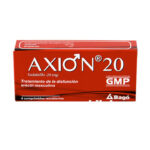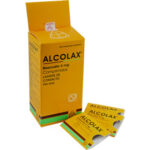Corteroid: Uses, Dosage, Side Effects, Interaction, Warnings

What is Corteroid?
Corteroid is a brand of betamethasone injection containing betamethasone phosphate 6mg and betamethasone acetate 6mg. Betamethasone injectable suspension is used to treat inflammation and pain from a variety of conditions. These conditions include multiple sclerosis, arthritis, skin disease, and blood disorders.
Corteroid is a corticosteroid drug, sometimes called a steroid. Steroids reduce the amount of inflammatory chemicals your body makes. They also reduce your body’s natural immune response, which helps to control inflammation. It’s given by a healthcare provider in a clinical setting. You won’t administer this drug yourself.
How should I use this medicine?
This medicine is for injection into a muscle, joint, lesion, or other tissue. It is given by a health care professional in a hospital or clinic setting. Talk to your pediatrician regarding the use of this medicine in children. Special care may be needed.
Overdosage: If you think you have taken too much of this medicine contact a poison control center or emergency room at once.
What are the side effects of Corteroid?
Corteroid injectable suspension doesn’t cause drowsiness, but it can cause other side effects.
More common side effects
The more common side effects that can occur with Corteroid include:
- Increased blood sugar level. Symptoms may include:
- confusion
- more frequent urges to urinate
- feeling sleepy, thirsty, and hungry
- Trembling, dizziness, weakness, fatigue, and fast heartbeat
- Low potassium level, which can cause muscle pain and cramps
- Skin changes, such as:
- pimples
- stretch marks
- slow healing
- hair growth
- Signs of infection, including:
- fever
- chills
- cough
- sore throat
- Mood and behavior changes
- Menstrual changes, such as spotting or skipping a period
- Vision changes, including blurred vision
- Headaches
- Weight gain
- Sweating
- Restlessness
- Nausea
Serious side effects
Call your doctor right away if you have serious side effects. Call 911 if your symptoms feel life-threatening or if you think you’re having a medical emergency. Serious side effects and their symptoms can include the following:
- Wheezing
- Chest tightness
- Fever
- Swelling of your face, lips, tongue, or throat
- Seizure
- Blue skin color
- Infection. Signs may include:
- cough
- fever
- chills
What may interact with this medicine?
Do not take this medicine with any of the following medications:
• mifepristone
This medicine may also interact with the following medications:
• aspirin
• vaccines
• warfarin
This list may not describe all possible interactions. Give your health care provider a list of all the medicines, herbs, non-prescription drugs, or dietary supplements you use. Also tell them if you smoke, drink alcohol, or use illegal drugs. Some items may interact with your medicine.
What should I watch out for while using this medicine?
Visit your doctor or health care professional for regular checks on your progress. Tell your doctor or healthcare professional if your symptoms do not start to get better or if they get worse. If you are taking this medicine over a prolonged period, carry an identification card with your name and address, the type and dose of your medicine, and your doctor’s name and address.
This medicine may increase your risk of getting an infection. Stay away from people who are sick. Tell your doctor or health care professional if you are around anyone with measles or chickenpox.
If you are going to have surgery, tell your doctor or health care professional that you have taken this medicine within the last twelve months.
Ask your doctor or health care professional about your diet. You may need to lower the amount of salt you eat.
This medicine may increase blood sugar. Ask your healthcare provider if changes in diet or medicines are needed if you have diabetes.
You may need to avoid immunization with certain vaccines while you are taking this medicine. Tell your doctor if you have taken this medicine before receiving any vaccine.
Corteroid Safety Information
- Infection risk warning: Steroids such as Corteroid suppress your body’s immune system. This makes it harder for you to fight infections. Long-term use of Corteroid and using it in higher doses may increase your chances of getting an infection. It may also hide the symptoms of any infection you may have.
- Anaphylactic reaction warning: In rare cases, Corteroid can cause an anaphylactic reaction. This is a severe allergic reaction that can be life-threatening. Symptoms can include swelling of the face and throat, and trouble breathing. If you have a history of allergic reaction to corticosteroids, tell your doctor before using this drug.





